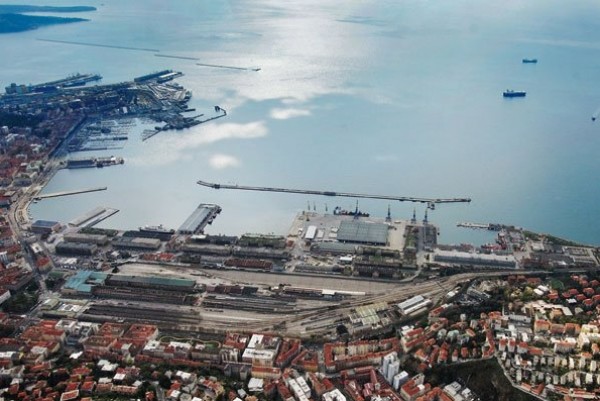| China Communications Construction Company is entering partnership with ports in Trieste and Genoa | |

| Author: CSEBA / SEEbiz |
| 16th March 2019 |
| ROME - Port authorities in the northern harbors of Genoa and Trieste may sign MOUs with the China Communications Construction Company (CCCC), the Belt and Road’s biggest builder, according to a Rome government official. The deals would focus on synergies and infrastructure investments, the official said. |
|
Trieste Port Authority head Zeno D’Agostino also said in a phone interview he expected to sign an accord with CCCC. Newspaper Corriere della Sera reported earlier Thursday that some 21 accords are being negotiated, with the banks involved possibly UniCredit SpA and Intesa Sanpaolo SpA. Salvini and League government members are pressuring Prime Minister Giuseppe Conte and Di Maio to limit the number and scope of both the main MOU on Belt and Road, and the agreements involving public and private sector firms, according to a Five Star government official. The government is “united in its desire to sign the document,” Conte’s office said in a statement late Thursday, adding that the agreement meets European principles and standards. Pending legislation on unblocking public works will contain wording to enhance so-called Golden Power rules to tighten guarantees on national interest in deals with foreign entities, according to the statement. The Italians are confident that Trieste will supplant Piraeus as China’s maritime gateway to southern Europe, despite China arguing that the Greek Port has increased container traffic after its acquisition by COSCO in 2016. Indeed, the Greek Port is at the periphery of Europe, while Trieste is nearer to its heart and is already connected by rail to Austria, Belgium, the Czech Republic, Germany, Hungary, Luxemburg and Slovakia. China’s foray into Europe has been well-documented. In addition to the Greek Port of Piraeus, the Chinese shipping giants Cosco Shipping and China Merchants Port Holdings have taken over the terminal in Zeebrugge, the second-biggest Port in Belgium after Antwerp. Overall, in the past decade, Chinese companies have acquired stakes in 13 ports in Europe. These Ports handle about 10% of Europe’s shipping container capacity. For comparison, while Chinese state-owned firms are marching across Europe, China bans non-Chinese terminal operators from owning more than 50% of Chinese terminals. However, these considerations are of secondary importance to Italy which should come at no surprise given the country’s dire need for massive investments to revive its struggling economy and the stalled construction sector. Regardless of the motivation behind the move, the acceptance of the BRI will indisputably have significant implications which go well beyond Italy and infrastructure projects. |
 |
|
| 23rd November 2024 | |
| China has good news for Croatian citizens | |
 |
|
| 7th November 2024 | |
| Pelagos net farm products presented at the Shanghai fai | |